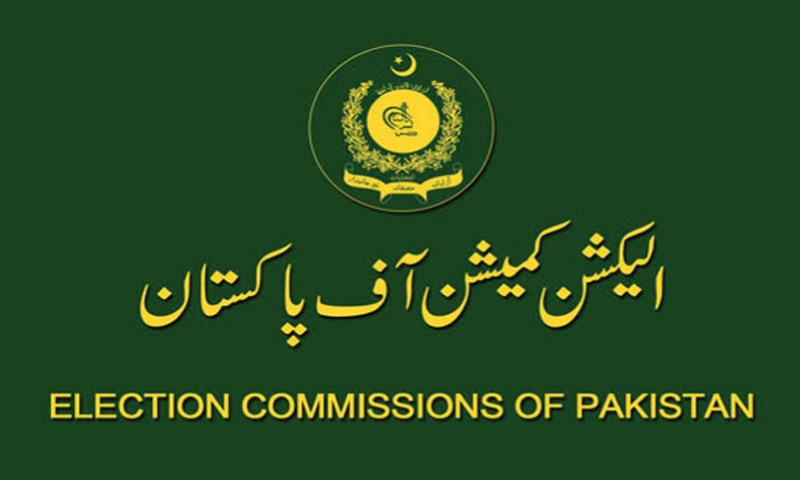THIS was a happening year. Indeed, it was. But under the debris of all the important economic and political happenings got buried somewhere the news of something that did not take place, because of a disagreement between those competent to ring in the change.
The Election Commission of Pakistan (ECP) got dysfunctional after the retirement of Chief Election Commissioner (CEC) Sardar Mohammad Raza on December 5. Not that the events at or around the ECP didn’t make to the front pages of the national newspapers or primetime TV news bulletins, the issue could not attract as much public attention as other happenings, which were considered more significant for the political, democratic and economic future of the country.
The Commission did not become dysfunctional in one day. It took more than 10 months’ stand-off between an arrogant government and an unyielding opposition. The dispute arose over the replacements of the two ECP members from Sindh and Balochistan, who retired on January 26, to complete the five-member Commission. Even the warnings about an ‘incomplete’ Commission eventually becoming dysfunctional following the retirement of Sardar Mohammad Raza and the intervention of the Islamabad High Court (IHC) did not help break the deadlock between the two sides on filling these vacancies.
It is not for the first time that the ECP is rendered dysfunctional since the historic 18th Amendment to the Constitution in 2010 changed the entire process of filling the vacancies at the Commission through a bipartisan consensus in parliament on new appointments to it, and halted work on the election-related activities, which many fear may further delay the local government elections in Punjab and Khyber Pakhtunkhwa (KP), and decisions on important cases involving foreign funding to political parties, particularly against the ruling PTI.
The ECP didn’t function for 43 days in 2016 when the then PML-N government chose not to initiate the process of consultation with the leader of the opposition and the National Assembly Speaker delayed the formation of the Parliamentary Committee for the appointment of the new ECP members. The Supreme Court had to ultimately intervene to get the process started.
This time round, again, it was the government, particularly the prime minister, who refused to sit down with the leader of the opposition for consultations to evolve an agreement on the nominations made by the two sides to fill the vacancies as required by the law. The consultations, however, began belatedly and indirectly with the Prime Minister Office (PMO) writing a letter to the opposition leader. Later on, Foreign Minister Shah Mahmood Qureishi was dispatched to meet Shahbaz Sharif – although after the passage of the mandatory 45 days during which such positions are supposed to be filled under the law – and to develop a consensus. Nothing came out of this lacklustre effort as the opposition refused to budge and insisted that its nominations be accepted by the government.
Irked by the opposition’s behaviour, the government approached President Arif Alvi with a request to use his ‘discretionary powers’ to resolve the issue. The president took little time in approving the names sent by the government for appointment against the vacancies and dispatched them to the Election Commission on August 22 to take oath of their office. The (now former) CEC refused to administer the oath, pointing out that the president had not followed the process laid down in the Constitution. There was also a debate about the ‘discretionary powers’ of the president in this matter.
The matter was taken by the opposition to the IHC, which endorsed the CEC’s viewpoint and referred the matter to the parliamentary committee. With both the government and the opposition equally represented on the 12-member committee, a stalemate was the natural outcome of its deliberations. Since the Constitution is silent on how to proceed in case of a tie over the nominations in the Parliamentary Committee, the matter was referred back to the court. The court gave the committee 10 days till December 17 for breaking the deadlock and developing an agreement. Although the two sides were reported to have started discussing the appointment of the members, which the government has finally agreed to link with the replacement of the CEC on a demand by the opposition, the situation was still unresolved till the writing of these lines.
Analysts described the stalemate between the government and the opposition on the issue of filling up ECP vacancies as ‘failure of politics, political parties and the parliament’.
“The current deadlock reflects the ruling party’s lack of leadership experience in dealing with such situations. Those in the party with the required skills don’t have the power to strike a deal with the opposition,” said one, reminding the way the PML-N and the PPP in the recent past were able to develop agreement on ECP nominations by each stepping back a little on their positions and finding consensus candidates for vacant positions.
Politics being the art of possible, the politicians should be able to find a way out of the most difficult situations by accommodating one another. In this case they do not appear to be changing their positions and accommodating the other side. If they do not learn to settle such disputes within parliament, they will have only themselves to blame for outside interventions for resolution of such deadlocks.














































Dear visitor, the comments section is undergoing an overhaul and will return soon.